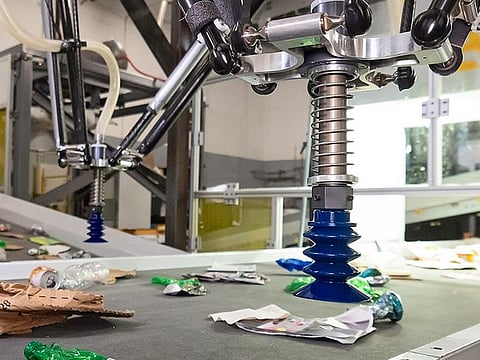Need of these times is to build ‘zero waste’ cities
In the Net Zero roadmap, going zero waste will have an integral role

As the world gears up for Global Recycling Day on March 18, it serves as a reminder of the urgent need for sustainable waste management practices, to ensure a circular economy, reduce waste, and combat climate change. The recycling industry has a vital role to play in achieving this goal, and requires a concerted effort to affect positive change, paving the way for a sustainable future.
The world generates 2.01 billion tonnes of municipal solid waste annually and it is expected to increase to 3.40 billion tonnes by 2050. It is more important now than ever to recognize the significance of recycling and its role in tackling the global waste crisis. The UAE has already made significant strides in this regard, announcing this year as the ‘Year of Sustainability’, under the theme ‘Today for Tomorrow’.
To build a zero-waste future, we believe that proper waste processing and material recovery is essential. Through an integrated waste management model, we have built some of the world’s most advanced recycling facilities. We are currently recovering materials like paper, plastic, tyres, old vehicles, metals, construction and demolition waste, organic waste, industrial wastewater, commercial and industrial waste, etc.
Materials are recovered as much as possible and reintegrated into the economy. Through these efforts, we are diverting 76 per cent of waste away from landfills, while the remaining unrecyclable waste is turned into energy at our waste-to-energy plant. Jointly developed by Beeah and Masdar, this first of its kind facility process nearly 300,000 tonnes of non-recyclable waste every year.
In addition to making Sharjah the first zero-waste city in the region, we are supporting the UAE’s Net Zero by 2050 Strategic Initiative by maximizing the use of resources.
A public-private push
I believe that the collaboration between governments and the private sector is also crucial to achieving a zero-waste future. The public sector, through policies and regulations, can set targets and create frameworks to promote sustainable practices.
Meanwhile, the private sector, with its expertise and resources, can play a vital role in driving innovation and implementing sustainable practices in its operations. By working together, they can develop and implement new technologies, products, and services that promote sustainability, reduce waste and greenhouse gas emissions, and conserve natural resources.
Collaboration can also lead to increased awareness and education, creating a more sustainable culture within society. Recognizing the importance of collaboration, we have partnered entities such as Italy’s Ambienthesis, and Greek-owned Polygreen, to bring best-in-class waste management strategies to the UAE.
Raise the pitch on awareness
Another factor in facilitating a zero-waste future is raising awareness through proper education. By educating the public on the importance of recycling, we can create a culture of sustainability and encourage people to take action to reduce waste.
Awareness campaigns can highlight the environmental impact of waste and encourage people to make more sustainable choices in their daily lives.
With sustainability gaining traction across the wider MENA region, we are working closely with numerous private and public entities in developing new recycling facilities and waste management strategies by taking advantage of localized opportunities.
This Global Recycling Day, we are optimistic about the future. We believe that by working together with governments, businesses, and individuals, we can create a sustainable, zero-waste future, where waste is no longer a problem but a valuable resource for our economy.




